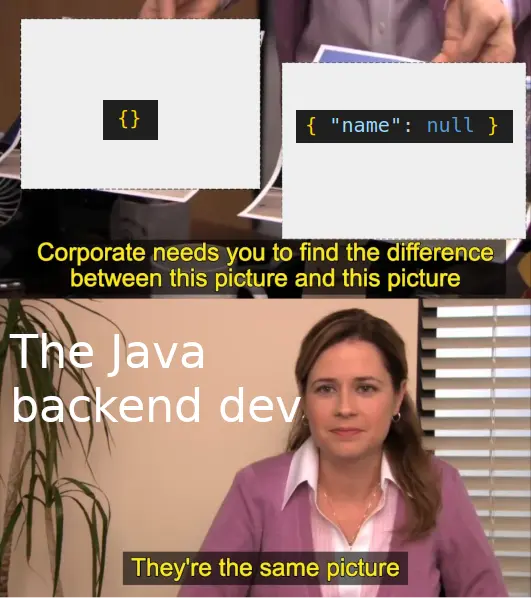this post was submitted on 30 Jun 2024
281 points (94.9% liked)
Programmer Humor
19589 readers
468 users here now
Welcome to Programmer Humor!
This is a place where you can post jokes, memes, humor, etc. related to programming!
For sharing awful code theres also Programming Horror.
Rules
- Keep content in english
- No advertisements
- Posts must be related to programming or programmer topics
founded 1 year ago
MODERATORS
you are viewing a single comment's thread
view the rest of the comments
view the rest of the comments

Sure, in a specific scenario where you decide they're equivalent they are, congratulations. They're not generally.
Did you read the comments above?
You can't just ignore context and proclaim some universal truth, which just happens to be your opinion.
At the (SQL) database level, if you are using null in any sane way, it means "this value exists but is unknown". Conflating that with "this value does not exist" is very dangerous. JavaScript, the closest thing there is to a reference implementation for json serialization, drops attributes set to undefined, but preserves null. You seem to be insisting that null only means "explicit omission", but that isn't the case. Null means a variety of subtly different things in different contexts. It's perfectly fine to explicitly define null and missing as equivalent in any given protocol, but assuming it is not.
Null at the SQL means that the value isn't there, idk where you're getting that from. SQL doesn't have anything like JS's undefined, there's no other way to represent a missing value in sql other than null (you could technically decide on certain values for certain types, like an empty string, but that's not something SQL defines).